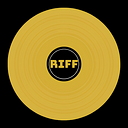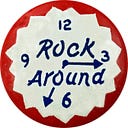Paul McCartney’s ‘Hi, Hi, Hi’ Was Banned for the Wrong Reason
‘200 Greatest 70s Rock Songs’ Book Excerpt
Please do not highlight.
Written by Paul McCartney, “Hi, Hi, Hi” was a No. 10 hit for Wings in 1973. The song was banned by the BBC for what they considered drug references and sexually suggestive lyrics. “I thought the ‘Hi, Hi, Hi’ thing could easily be taken as a natural high, could be taken as a booze high and everything,” McCartney told Rolling Stone in 1974.
“It doesn’t have to be drugs, you know, so I’d kind of get away with it. Well, the first thing they saw was drugs, so I didn’t get away with that, and then I just had some line, ‘Lie on the bed and get ready for my polygon.’
“The daft thing about all of that was our publishing company, Northern Songs, owned by Lew Grade, got the lyrics wrong and sent them round to the radio stations and it said, ‘Get ready for my body gun,’ which is far more suggestive than anything I put. ‘Get ready for my polygon,’ watch out baby, I mean it was suggestive, but abstract suggestive, which I thought I’d get away with. Bloody company goes round and makes it much more specific by putting ‘body gun.’ Better words, almost.
“The great laugh is when we go live, it makes a great announcement. You can say ‘This one was banned!’ and everyone goes ‘Hooray!’ Everyone’s a bit anti-all-that-banning, all that censorship. Our crew, our generation, really doesn’t dig that stuff.”
“‘Hi, Hi, Hi’ was a song of the times,” McCartney explained in Wingspan: Paul McCartney’s Band on the Run. “As anyone knows about that period, drugs were fairly widespread. Looking back on it now, I have a completely different perspective, but at the time it seemed to us that everyone was doing it.
“To me, ’Hi, Hi, Hi’ was a perfectly harmless little rock and roll song — ’we’re gonna get high-high-high.’ In my mind, if someone gets drunk then they’re getting high. But because of the times, it was equated with pot, and so, again, the BBC banned it.
“The drug scene was less harmful than it was going to get. Shortly after this period, people were doing much harder drugs, and you were seeing casualties. Looking back on it, I realize we were lucky to get through it.”
Frank Mastropolo is the author of the 200 Greatest Rock Songs series and Fillmore East: The Venue That Changed Rock Music Forever. For more on our latest projects, visit Edgar Street Books.

